I would like to compute derivative of y=Abs(0.5-0.5*sqrt(1-4*x)) in 0.1, using python.
This is my code:
x=Symbol('x')
y=Abs(0.5-0.5*sqrt(1-4*x))
deriv=y.diff(x)
d=lambdify(x,deriv,'numpy')
print d(0.1)
This is what I get:
Traceback (most recent call last):
File "/home/milossimic/g4/s1/.../optimize.py", line 100, in <module>
print d(0.1)
File "<string>", line 1, in <lambda>
NameError: global name 'Derivative' is not defined
I'm a newbie to sympy and numpy, so I guess I'm using the wrong method to determine derivative.
EDIT: I printed deriv and this is what I got:

After reading this http://docs.sympy.org/dev/modules/functions/elementary.html, I've tried fdiff():
x=Symbol('x')
y=Abs(0.5-0.5*sqrt(1-4*x))
deriv=y.fdiff()
d=lambdify(x,deriv,'numpy')
print d(0)
But after experimenting with other values to compute derivative, I figured out that the result is -1, 0 or 1 because deriv is actually sign(-0.5*sqrt(-4*x + 1) + 0.5).
What should I do?
Both numpy and sympy are imported:
from sympy import *
import numpy as np
If I try to find derivative of a function that is not under Abs, there are no problems.